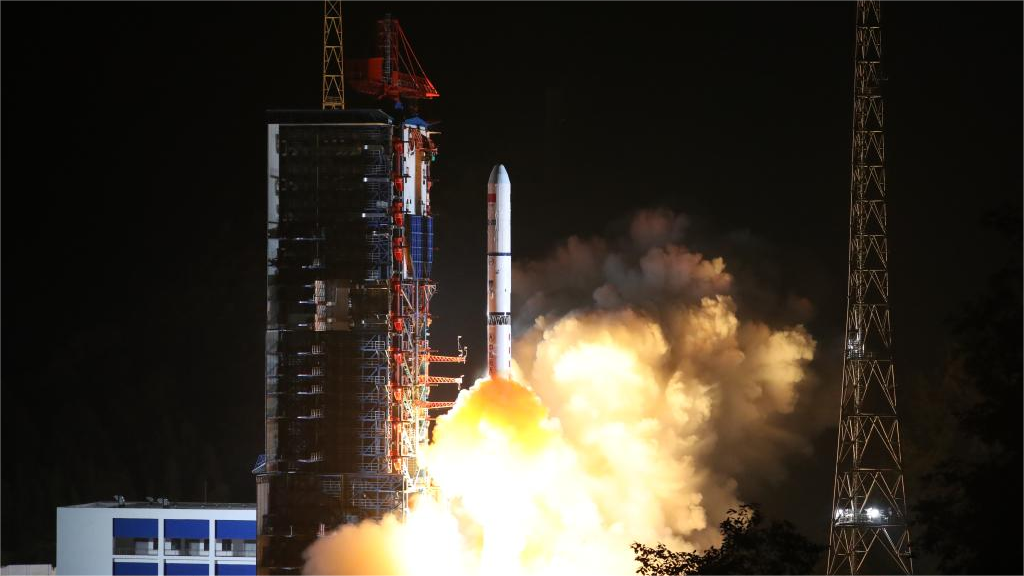China's "hometown of blood oranges" thrives with ecological recycling farming
CHENGDU, Oct. 28 (Xinhua) -- Zizhong County, situated in Neijiang City in southwest China's Sichuan Province, is renowned for its distinctive agricultural product -- blood oranges.
Zizhong blood orange is a standout brand, said local entrepreneur Li Dagang, adding that in 2017, he returned to his hometown to leverage his business expertise in support of the region's iconic produce. He is one of the individuals drawn back to their hometown, thanks to the local government's efforts to revitalize the blood orange industry.
After decades of promoting the local blood oranges, Zizhong is now focusing on elevating its position in the value chain and adopting more eco-friendly cultivation practices.
The county has been venturing into innovative cultivation practices that involve the integration of blood orange cultivation with fish farming.
Stepping into an integrated cultivation demonstration zone, tucked away in a hilly countryside, visitors are greeted by expansive, circular pools at the foot of the hill. These pools house various fish species, including catfish and perch, and the hill slopes are adorned with trees bearing fresh blood oranges.
In 2019, villagers began exploring fish farming options in above-ground ponds with water being pumped in. However, they encountered challenges related to residual water pollution and the high expenses associated with managing this pollution.
After the local agricultural authorities learned about the situation, relevant technical experts recommended transforming the hills where the ponds were situated into blood orange orchards. This approach allowed for the utilization of the residue water produced by the fish farming ponds, effectively conserving water resources and simultaneously lowering the expenses associated with cultivating organic fruits.
The excrement generated by the fish proceeds through solid-liquid separation, protein separation and sterilization, among other procedures. The end products, once fermented, are used as organic fertilizer for blood orange trees, and the purified pool water is used for irrigating blood orange plants or reused in fish farming.
A fish farming pool is a funnel-shaped container that allows fish feces to be discharged and concentrated for further processing, explained Lai Yonghui, a technician with the agricultural authority of Zizhong County, adding that the organic fertilizer generated through this process is used to increase the organic content of the soil, which not only saves two-thirds of the fertilizer but also improves the quality of blood oranges.
In the demonstration zone, a total of 2,000 mu (about 133.3 hectares) of blood oranges have been cultivated, complemented by the development of 44 fish ponds. This initiative has created employment opportunities for over 800 villagers and generated an annual output value in the hundreds of millions of yuan.
The promising outlook of Zizhong's blood orange industry has encouraged Li Dagang to get on board, fulfilling his long-standing aspiration to both reside and work in his hometown.
According to Li, in order for Zizhong blood oranges to establish a presence in the high-end market, there is a need for advancement in terms of product quality standardization, marketing strategies, and achieving economies of scale. He expressed his hope that the business expertise he accumulated while running companies in other sectors could be beneficial.
His confidence in starting a business centered around blood oranges was reinforced by the strong commitment of local governments to nurture a thriving industry through measures such as offering subsidies.
He founded a company that is engaged in the cultivation, processing and marketing of blood oranges. This company focuses on promoting standardized fruit cultivation, creating derivative products such as blood orange beers, wines, facial masks and essential oils. Additionally, they market these fruits through both online and offline sales channels.
"In the past, slicing open a blood orange was akin to opening a mystery box, as it was hard to predict its internal color in advance, and farmers had to rely on their experience during the harvest," said Li, explaining the importance of an anthocyanidin-testing device jointly developed by his company and research institutes, as it greatly contributes to standardization.
The device can test the amount of anthocyanidin in a blood orange, the ingredient essential to the blood-red color of the fruit as well as its nutrients. Thanks to the device, it's possible to non-intrusively test 10,000 kg of blood oranges in just one hour.
"Only those that achieve the highest ratings for size, appearance, sugar content and anthocyanidin levels can be labeled as Zizhong blood oranges," Li said.
According to Li Li, head of the agricultural authority of Zizhong, the county has become the largest blood orange industry base in China, with an annual production of 400,000 tonnes of blood oranges and an output value of 5.8 billion yuan (about 808 million U.S. dollars) across the entire industrial chain. Enditem
(Peng Yunjia, Xingtuo, Li Like contributed to the story)
Photos
Related Stories
- Orange farmers harvest wealth from green mountains
- In pics: autumn harvest across China
- Harvesters line up to reap rice
- Autumn harvest across China
- In pics: autumn harvest in full swing across China
- A glimpse of autumn farming in China
- Farmers busy with harvesting across country on first day of autumn
- Beautiful pictures of eco-friendly farming in E China's Zhejiang
- Chinese, African scientists call for climate-resilient food systems to beat hunger
- Pear farming goes smart
Copyright © 2023 People's Daily Online. All Rights Reserved.









